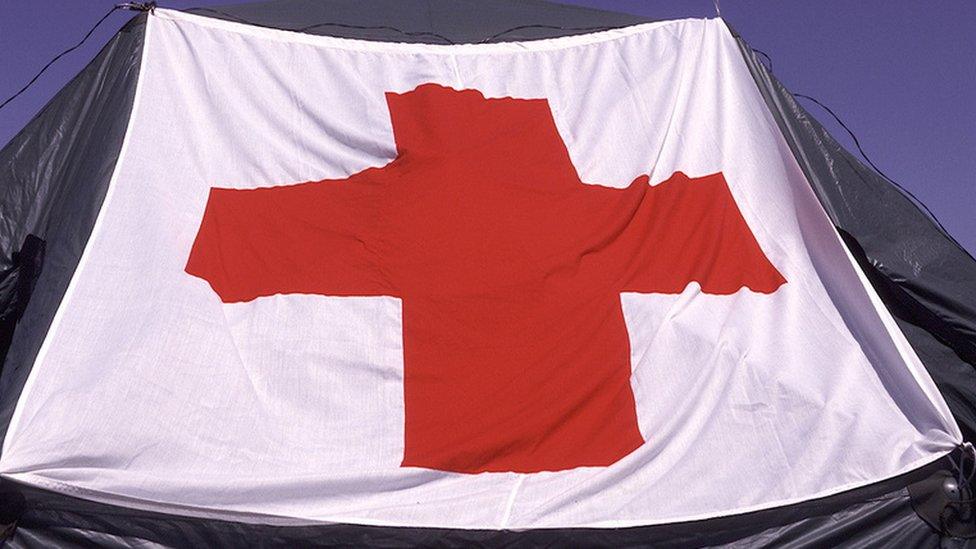Protests over plan to change domain pricing
- Published

Many non-profits and charities, such as the Red Cross, use the .org domain
Protests have greeted plans to remove a cap on the price of web domains that end in .org, .biz and .info.
This change could hit a lot of charities, many of which use the .org domain for their websites.
The organisation overseeing web domains wants to let the companies behind the suffixes set their own prices.
One domain seller criticised the idea, saying prices to renew or buy these domains could go "sky high", external as a result.
Price change
The price cap removal has been proposed by the Internet Corporation for Assigned Names and Numbers (Icann), which oversees the web's domain name system.
It wants to remove the cap because it dates from an era when there were only a few so-called "top-level" domains. Now there are more than 1,200 and none of the new ones are subject to any price restrictions.
Icann's plan drew criticism from registrar Namecheap, which said the move could mean prices "shoot up" or go "sky high".
"Switching domains is hard, so you will have little option but to pay the higher prices," wrote Jackie Dana, Namecheap's blog editor.
Icann launched a consultation exercise, external to debate the idea in March, and asked anyone involved with domains to comment via a discussion forum on its own website.
The consultation exercise ends on 29 April and Icann will report on the response on 13 May.
Of the three domains under consideration, .org is by far the biggest. It is believed to have about 10 million customers, many of which are non-profit groups or charities.
Protections
Comments left on the Icann website about the proposed change are mainly critical. Holders of .org domains, companies selling domain names, ISPs and net marketing firms have all asked for the proposal to be dropped.
One commenter said removing the cap would undoubtedly lead to higher prices, which those holding .org, .biz or .info domains would have to pay.
The "enormous switching costs" made it impossible to move large, established organisations to new domains.
Others said Icann should "leave well enough alone" as any change could lead to domain prices no longer being "reasonable, affordable and stable".
But in a statement to the BBC, Icann said it was not a price regulator, and that the protections were put in place by the US Department of Justice at a time when there were fewer options for organisations wanting to register a domain name. Those protections are no longer in effect, it said.
"Existing domain registrants are also afforded some protection in the event of price increases," added Cyrus Namazi, Icann's head of global domains division.
"They must be given a minimum six-month notice of any price increase and can renew their registrations for as many as 10 years prior to the change taking effect, thus enabling a registrant to lock in current prices for up to 10 years in advance of a pricing change"
- Published1 February 2019

- Published26 June 2018

- Published25 March 2019
